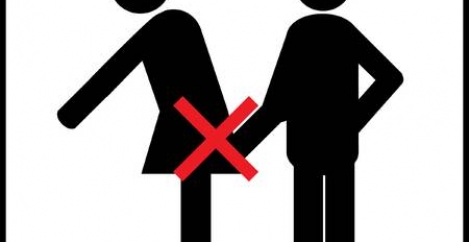July 26, 2018
MPs say more effort needed to tackle widespread sexual harassment in workplace
 Sexual harassment in the workplace is widespread and commonplace, with unwanted sexual behaviours such as sexual comments, touching, groping and assault seen as an everyday occurrence and part of the culture in workplaces, and the Government, regulators and employers are failing in their responsibilities to tackle the problem says an influential group of MPs. Employers and regulators have ignored their responsibilities for too long, found the Women and Equalities Committee following a wide-ranging six-month inquiry and often legal protections are not available to workers in practice. The Committee found that despite 40 percent of women and 18 percent of men having experienced unwanted sexual behaviour in the workplace there has been a failure to tackle unlawful behaviours, despite the Government’s obligations under international law. The report calls on Government to focus on five priorities to put sexual harassment at the top of the agenda for employers.
Sexual harassment in the workplace is widespread and commonplace, with unwanted sexual behaviours such as sexual comments, touching, groping and assault seen as an everyday occurrence and part of the culture in workplaces, and the Government, regulators and employers are failing in their responsibilities to tackle the problem says an influential group of MPs. Employers and regulators have ignored their responsibilities for too long, found the Women and Equalities Committee following a wide-ranging six-month inquiry and often legal protections are not available to workers in practice. The Committee found that despite 40 percent of women and 18 percent of men having experienced unwanted sexual behaviour in the workplace there has been a failure to tackle unlawful behaviours, despite the Government’s obligations under international law. The report calls on Government to focus on five priorities to put sexual harassment at the top of the agenda for employers.
These are:
- Introduce a new duty on employers to prevent harassment, supported by a statutory code of practice outlining the steps they can take to do this; and ensuring that interns, volunteers and those harassed by third parties have access to the same legal protections and remedies as their workplace colleagues;
- Require regulators to take a more active role, starting by setting out the actions they will take to help tackle this problem, including the enforcement action they will take; and making it clear to those they regulate that sexual harassment is a breach of professional standards and a reportable offence with sanctions;
- Make enforcement processes work better for employees by setting out in the statutory code of practice what employers should do to tackle sexual harassment; and reducing barriers to taking forward tribunal cases, including by extending the time limit for submitting a claim, introducing punitive damages for employers and reducing cost risks for employees;
- Clean up the use of non-disclosure agreements (NDAs), including by requiring the use of standard, plain English confidentiality clauses, which set out the meaning, limit and effect of the clause, and making it an offence to misuse such clauses; and extending whistleblowing protections so that disclosures to the police and regulators such as the EHRC are protected;
- Collect robust data on the extent of sexual harassment in the workplace and on the number of employment tribunal claims involving complaints of harassment of a sexual nature.
“It is utterly shameful that in 2018, unwanted sexual comments, touching, groping and assault are seen as an everyday occurrence and part of the culture in many workplaces,” said Chair of the Women and Equalities Committee, Maria Miller MP.
“There is currently little incentive for employers to take robust action. In contrast, there is considerable focus on other corporate governance issues like protecting people’s personal data and preventing money laundering, with stringent requirements on employers and businesses to meet their responsibilities. It’s time to put the same emphasis on tackling sexual harassment.”
Carolyn Brown, employment legal partner and head of RSM Legal said: “This is an important report which proposes placing greater responsibility on employers and regulators to tackle sexual harassment in the workplace and provide support to victims.
“While there has been widespread criticism of the use of non-disclosure agreements as a mechanism in resolving disputes resulting from claims of sexual harassment, the Committee has stopped short of proposing an outright ban on their use.
“Instead, the Committee recommends tightening the use of NDAs – notably by requiring the use of standard, plain English confidentiality clauses, making it an offence to misuse such clauses to prevent whistleblowing disclosures, and extending whistleblowing protections so that disclosures to the police, regulators and courts are protected.
“In our view, these recommendations seek to enhance protections. NDAs do play an important role in protecting both the identities of victims and of those who are wrongly accused of sexual harassment. They are also valued by employers as an effective means of resolving disputes. A recent YouGov/RSM survey found that 72 per cent of employers would consider using an NDA as part of a termination settlement.”
















